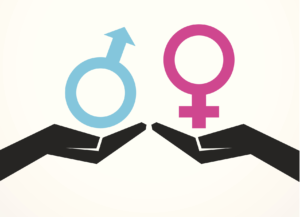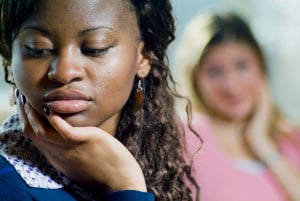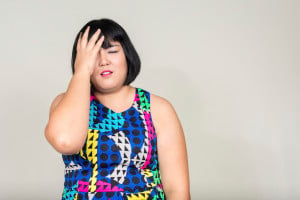On May 9, 2012, President Obama publically announced he supported same-sex marriage for the first time.
It was a big moment in the long fight for marriage equality.
So big that even though Arro Verse, a publically out indie singer and songwriter, hadn’t even been interested in politics before, she felt called to create a song commemorating this moment.
Knowing that she needed to release it quickly, she called together some talented music producers and began recording the song, Marry Me, as she was figuring out the words for it.
And what was supposed to be just a song started getting picked up by other people across the US and world.
People began telling her how much the song resonated with them and their desire for marriage equality.
Arro saw that she had a choice to make. She could either keep the song as just something she plays or use it to contribute to a greater cause.
She chose to use her gift of music to join in the fight for marriage equality and started The Marry Me Movement, inspired by her song to use softball games to help bring together and strengthen gay-friendly communities across the US to advocate for marriage equality.
Growing Up
Arro had never been involved in politics before. She had always been into music and felt politics were for political people, i.e. not her.
She was raised in a multicultural family with an African American father and a white mother. Her father is a Christian minister who supports gay rights and has even married same-sex couples. And her mother is a member of Parents, Families, & Friends of Lesbians and Gays (PFLAG) and has always shown a deep passion for politics and gay rights.
So while marriage equality wasn’t a frequently household topic in America, it wasn’t lost on Arro that in another decade, her parents wouldn’t have been legally allowed to marry.
And now she wasn’t allowed to marry if she wanted to.
When she came out to her family as a lesbian in her early 20’s, they gave her what so many other LGBTQ people want and too often don’t receive.
Continued love, acceptance, and support.
And when she released the song, Marry Me, her parents called her up telling her how proud they were of her.
Arro knew that she had been so much more fortunate than many other LGBTQ, who had been rejected by their families and religious community, thrown out of the house, run away, been bullied, thought of or committed suicide, suffered major depression, and more.
Growing up, Arro saw how some of her LGBTQ friends weren’t accepted by their parents and the pain it caused. At first it was really strange to see her friend’s parents do that given how loving and supportive hers were.
But that feeling quickly turned to deep compassion for the LGBTQ community as a whole as she saw how much the homophobia from their families hurt her friends.
So when she felt called by a higher power to speak out, Arro knew she had been inspired to create that song for a reason and that she had to follow that inspiration.
For the first time, she felt that through her music, she had a way to speak out where others couldn’t. She also felt she could more easily handle the backlash because of the support her family and friends gave her
And you know, if Bob Dylan could write political songs so could she! After all, they have the same birthday.
Starting The Marry Me Movement
Even though she was an out musician, this song outed Arro completely and there was no escaping it when she played it at shows. At times, she didn’t know how her audience would react and sometimes feared for her safety.
But something really interesting started to happen. People she never would have suspected of supporting gay rights started coming up to her to tell her how important marriage equality was to them and their loved ones.
People from Republicans, straight people, to religious leaders.
Early on, Arro felt she was living in a bubble of gay-friendly straight people. But after she released the song, she realized that it wasn’t that she lived in a bubble.
Inspired by Arro’s song “Marry Me”, The Marry Me Movement aims to create a comfortable, fun, and safe environment through sports for gay people and gay-friendly straight people – who normally didn’t show their support – to share their values for equality with others.
In this context, supporting marriage equality feels…normal.
People wouldn’t need to join an advocacy group, start campaigning for certain policies, or become policy wonks.
They would just need to show up, play some softball, become informed about issues in the community, and connect with others who share support for marriage equality.
And this would let the gay communities across the US know that they are stronger and bigger then they have ever dreamed.
And by the time the game is over, they would have gained knowledge on LGBTQ issues and the local law in regards to marriage equality and developed some relationships with supportive people that they could continue.
Seeing how these communities could be developed and strengthened only convinced Arro even more that she needed to continue this work and make the bubble bigger so others can join.
How the Work Impacted Her
As Arro started getting volunteers from all types of backgrounds, she saw how united they were in how much they cared about the LGBTQ community.
She would have conversations with volunteers, both gay and straight, about what was going on the LGBTQ community beyond marriage equality. They’d talk about health issues, homelessness, substance abuse, and the need for supporting LGBTQ community members of color.
As a result, they decided to make their softball games not just advocate for marriage equality in the future but to also provide a safe, educational, and helpful community space right now for gay people.
From bringing leaders from different parts of the community and health services available in the area, they aim to do what they can to create a broader sense of community.
As they worked to organize these games, Arro and the other volunteers realized how much they cared about spreading The Marry Me Movement.
Arro realized that providing the opportunity for people to come together – who normally wouldn’t – in solidarity for marriage equality was actually a gift she had been given.
She knows she can’t control the outcome. But she’ll take this gift and do the best she can to bring these games to different communities across the US.
Arro’s Advice For People Thinking About Becoming Politically Active
Arro feels the most important thing is to care about people.
Living in an individualistic society, many don’t know how to care for others, especially beyond their close circle of family and friends. In some ways, people seem to be almost afraid of caring for others.
But you can’t be afraid to stand up for what you believe. As the song says, “gotta fight for the words marry me”
Arro never grew up seeing a lesbian marriage. Because of the laws, it was never even a possibility for herself even though she wanted to get married one day.
It took caring about herself and others – that she wanted marriage to be possible for herself and others.
She didn’t act like it wasn’t her problem or didn’t exist. She gave herself permission to want it and fight for it.
So Arro told her conservative friend who voted for politicians against gay rights that she wanted to have a wedding one day. And her friend cared enough about her to change her mind and vote for the presidential candidate who now supports marriage equality.
To get involved with The Marry Me Movement, visit their website or follow them on Twitter @marrymemovement. You can also follow Arro on Twitter @arroverse.
Sandra Kim is the Founder & Editor of Everyday Feminism. She brings together her personal and professional experience with trauma, personal transformation, and social change and gives it all a feminist twist.
Search our 3000+ articles!
Read our articles about:
Our online racial justice training
Used by hundreds of universities, non-profits, and businesses.
Click to learn more





















